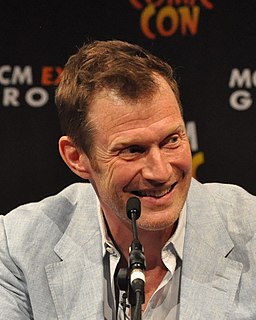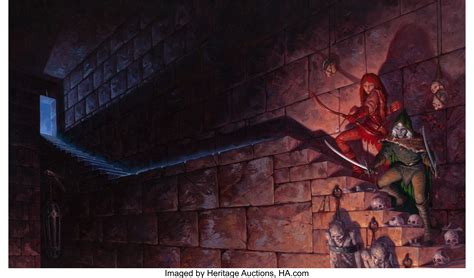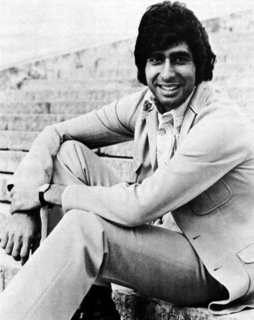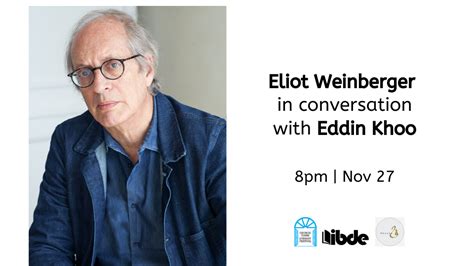A Quote by Michael Ondaatje
Read him slowly, dear girl, you must read Kipling slowly. Watch carefully where the commas fall so you can discover the natural pauses. He is a writer who used pen and ink. He looked up from the page a lot, I believe, stared through his window and listened to birds, as most writers who are alone do. Some do not know the names of birds, though he did. Your eye is too quick and North American. Think about the speed of his pen. What an appalling, barnacled old first paragraph it is otherwise.
Quote Topics
About
Alone
American
Appalling
Believe
Birds
Carefully
Commas
Dear
Did
Discover
Eye
Fall
First
Girl
Him
His
I Believe
Ink
Kipling
Know
Listened
Looked
Lot
Most
Must
Names
Natural
North
North America
North American
Old
Otherwise
Page
Paragraph
Pauses
Pen
Quick
Read
Slowly
Some
Speed
Think
Though
Through
Too
Up
Used
Watch
Window
Writer
Writers
Your
Related Quotes
For me writing is a long, hard, painful process, but it is addictive, a pleasure that I seek out actively. My advice to young writers is this: Read a lot. Read to find out what past writers have done. Then write about what you know. Write about your school, your class, about your teachers, your family. That's what I did. Each writer must find his or her own kind of voice. Finally, you have to keep on writing.
Writers are great lovers. They fall in love with other writers. That's how they learn to write. They take on a writer, read everything by him or her, read it over again until they understand how the writer moves, pauses, and sees. That's what being a lover is: stepping out of yourself, stepping into someone else's skin.
I have a real aversion to machines. I write with a pen. Then I read it to someone who writes it onto the computer. What are those computer letters made of anyway? Light? Too insubstantial. Paper, you can feel it. A pen. There's a connection. A pen goes exactly at your speed, whereas that machine jumps. And then, that machine is waiting for you, just humming "uh-huh, yes?
I have always been jealous of artists. The smell of the studio, the names of the various tools, the look of a half-finished canvas all shout of creation. What do writers have in comparison? Only the flat paper, the clacketing of the typewriter or the scrape of a pen across a yellow page. And then, when the finished piece is presented, there is a small wonder on one hand, a manuscript smudged with erasures or crossed out lines on the other. The impact of the painting is immediate, the manuscript must unfold slowly through time.
As a younger person, I was obsessed with Ray Bradbury, and I think his stories did more to shape me as a storyteller than anybody else - even though, when I read them now, a lot of them seem overly sentimental. But that's probably the writer that I've thought about the most, even though I don't necessarily like a lot of his work.
Peter stood, cleared his throat, and began to hum softly, then sing, slowly building up the song as his voice cleared. He found the old tune, the song of the Sunbird. And as he sung, as his rich voice echoed off the tall cliffs, the birds and the faeries lent him their voice and soon the tune drifted throughtout the garden.
It was a real whale, a photograph of a real whale. I looked into its tiny wise eye and wondered where that eye was now. Was it alive and swimming, or had it died long ago, or was it dying now, right this second? When a whale dies, it falls down through the ocean slowly, over the course of a day. All the other fish see it fall, like a giant statue, like a building, but slowly, slowly.
I remember the day before my dad died, I was in a hospital room with him, and he had lived a long life. He was 94, and I helped him get up, and there were two windows separated by the partition. I took him to the first window, and he kind of found his way to the second window, and on the way there was a mirror, and he looked into it, and I saw through the corner of my eye, I remember the look on his face. What came over his face was "So I'm here. I've crossed that bridge."
First, consider the pen you write with. It should be a fast-writing pen because your thoughts are always much faster than your hand. You don't want to slow up your hand even more with a slow pen. A ballpoint, a pencil, a felt tip, for sure, are slow. Go to a stationery store and see what feels good to you. Try out different kinds. Don't get too fancy and expensive. I mostly use a cheap Sheaffer fountain pen, about $1.95.... You want to be able to feel the connection and texture of the pen on paper.
I had this chronic hyperactivity and an inability to focus, so I was forever being moved to another class, with a much smaller group of children - some of them about 18. If I was asked to read a paragraph, this white wall would go up in my head. Still now, I read very slowly and can rarely work out a tip.
Do let him read the papers. But not while you accusingly tiptoe around the room, or perch much like a silent bird of prey on the edge of your most uncomfortable chair. (He will read them anyway, and he should read them, so let him choose his own good time.) Don't make a big exit. Just go. But kiss him quickly, before you go, otherwise he might think you are angry; he is used to suspecting he is doing something wrong.







































